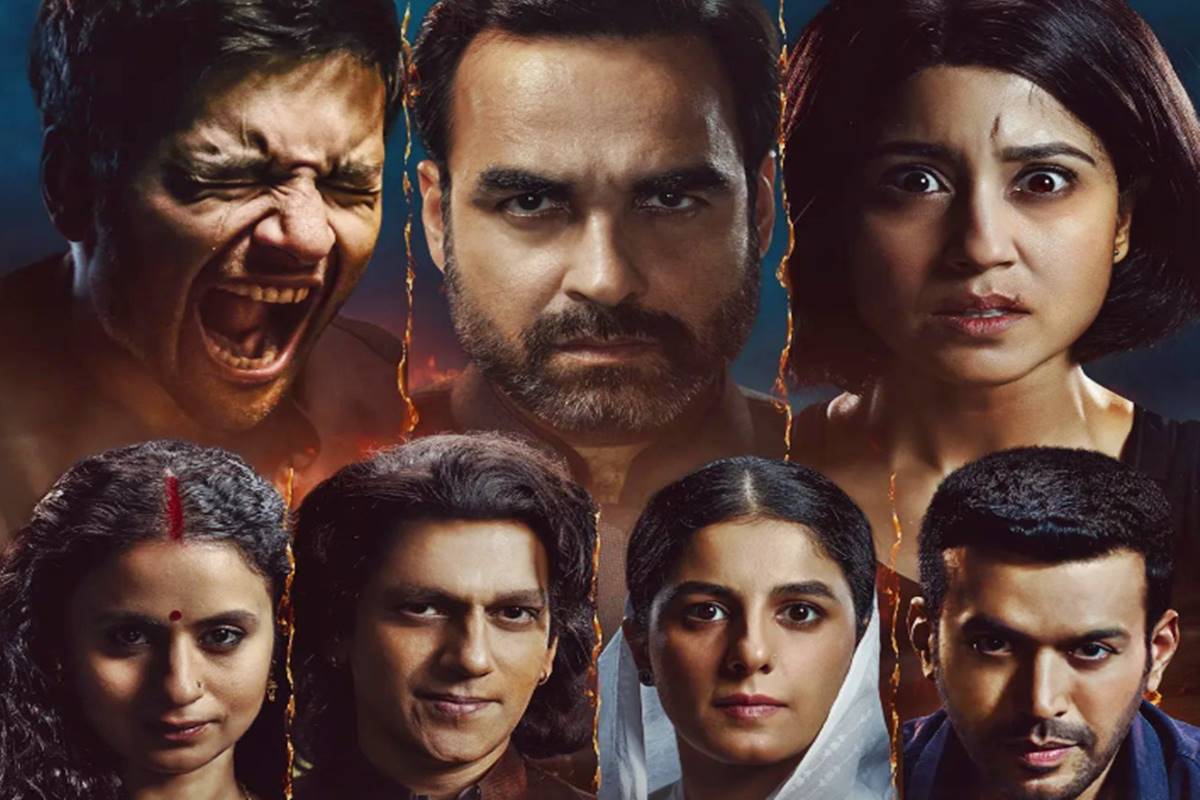‘Mirzapur 3’ bonus episode drops today: Munna Bhaiya returns
On popular demand, Munna Bhaiya is back with a bang! ‘Mirzapur 3’s bonus episode featuring Divyendu releases today, August 30.
Mirzapur Season 3 diverges from its predecessors by eschewing the one-man show format.

Image Source: Prime Video/Instagram
One seat, a surfeit of contenders and internecine skirmishes for supremacy—such is the volatile concoction that is Mirzapur. Unrestrained savagery and copious amounts of gore intermingle with a mercurial plot, ensuring that this series is an unrelenting symmetry of chaos and intrigue.
The third season of Mirzapur kicks off with Munna Tripathi’s (played by Divyendu in earlier seasons) cremation, where his bereaved widow, Madhuri (Isha Talwar), now ascended to the position of chief minister of Uttar Pradesh, solemnly vows to eradicate terror through a stringent zero-tolerance policy. The narrative then transitions to a courtroom setting, depicting the criminal trial of Ramakant Pandit (Rajesh Tailang), who stands accused of the homicide of SSP Maurya (Amit Sial). Despite the grave charges, the erstwhile advocate adamantly declines to mount a defence, even on the justifiable grounds of grave provocation. He even refuses to accept any assistance from his son, Guddu Pandit (Ali Fazal), now the ‘King’ of Mirzapur. Ramakant’s conscience and overwhelming sense of self-guilt, however, come back to bite him in the proverbial posterior. While languishing in prison, he gains a newfound appreciation for Darwin’s theory, realising all too vividly the brutal reality of ‘survival of the fittest’.
With Munna Bhaiya and Bauji (Kulbhushan Kharbanda) meeting their untimely demise, and Kaleen Bhaiya (Pankaj Tripathi) conspicuously absent, the Tripathis have been unceremoniously ousted from the ‘throne’ of Mirzapur. Guddu, now the reigning potentate of Mirzapur, however, struggles to assert dominion over Purvanchal. His contemporaries remain sceptical, doubting his capacity to deftly juggle the dichotomy of bullets and business. Guddu finds an astute ally in the incisive Golu Gupta (Shweta Tripathi), who deftly orchestrates business affairs and liaises with their essential contacts. Despite occasionally being hampered by the capricious whims of his hormonal fervour, Guddu rises to the challenge, proving himself a formidable player in this ruthless game.
Advertisement
Their most formidable adversary is Sharad Shukla (Anjum Sharma), who has Kaleen Bhaiya under his ‘custody’, nursing him back to health. Sharad harbours ambitions of claiming the throne of Mirzapur, driven by a fervent desire to avenge his father Ratishankar Shukla’s death at the hands of Guddu Pandit in the first season. As the plot thickens, it becomes evident that Sharad has garnered the allegiance of other ‘bahubalis’ (warlords) to secure his ascent to power. Even Madhuri contemplates throwing her support behind him.
Sharad Shukla’s Machiavellian political manoeuvres are both intellectually and physically compelling, an attestation to the actor’s commendable performance. Meanwhile, Talwar’s portrayal of Madhuri is impeccable, embodying a poised, soft-spoken demeanour that belies her unforgiving nature.
The character of Golu Gupta, despite Shweta Tripathi’s valiant efforts to infuse life and depth into the role, deserved a more nuanced and substantial script. Ali Fazal once again delivers a masterclass in acting; his portrayal of Guddu is not only brawny but also exhibits a newfound cerebral acumen.
However, the Siwan subplot, spearheaded by Bharat/Shatrughan Tyagi (Vijay Varma) and little by his father Dadda, continues to feel like an extraneous excursus. Despite the writers’ strenuous efforts to weave it into the main narrative, Tyagi’s storyline and its accompanying twists appear superfluous, ultimately contributing little to the overarching plot until the very end.
Lala, currently residing in the less-than-luxurious accommodations of the local jail, finds himself contemplating a return to his nefarious enterprises. His time behind bars seems less a deterrent and more a strategic retreat, giving him ample opportunity to plot his resurgence in the criminal underworld. Meanwhile, his daughter, Shabnam, emerges as a significant character this season, her actions reverberating throughout the show like ripples in a pond of cogency.
Manu Rishi’s portrayal of IG Dubey is nothing short of magnificent. Rishi imbues the character with a perfect blend of gravitas and cunning, making IG Dubey a force to be reckoned with.
Amidst this tumult, Rasika Dugal, portraying Beena Tripathi, delivers a stellar performance as a woman ensnared in the perilous chess game of power and survival. With remarkable finesse, she ensures that both she and her son remain unscathed amid the relentless machinations and treachery surrounding them. Her portrayal brilliantly captures the essence of a cunning strategist, deftly navigating the labyrinthine dynamics of her volatile world.
This season diverges from its predecessors by eschewing the one-man show format. While Munna Bhaiya’s absence is palpable, the intricate dance of political machinations comes to the forefront, significantly enriching the narrative. Each character is afforded the spotlight to play their distinct role, ensuring that the weight of the show does not rest on a single pair of shoulders. The violence, though unpredictable, remains grounded within the storyline’s context.
Pankaj Tripathi’s portrayal is a masterclass, highlighting Mirzapur’s dependency on his character and making it unequivocally clear that his retirement is simply out of the question. Although J.P. Yadav (Pramod Pathak) has a more subdued presence this season, his potential for a more pronounced return in future episodes looms large. And yes, viewers should stay tuned for the post-credits scene, a suggestive hint that another season is undoubtedly on the horizon.
Advertisement